Dr. Mardy's Quotes of the Week ("Embracing Uncertainty")
Oct. 20—26, 2024 | THIS WEEK'S THEME: “Embracing Uncertainty"
Opening Line of the Week
Atlas begins his essay on the elusive nature of truth by offering a memorable quotation from a famous figure. In his opening paragraph, he also highlights an age-old problem—the difficulty for human beings to be completely certain about anything.
For over 2,000 memorable opening lines from every genre of world literature, go to www.GreatOpeningLines.com.
This Week’s Puzzler
On October 21, 1929, this woman was born in Berkeley, California. Raised in a highly intellectual family—her mother was a respected writer, her father a famous anthropologist—it was no surprise when she became an early reader. She was also an early aspiring author, submitting a science-fiction short story to Astounding Science Fiction magazine at age eleven.
After graduating from Berkeley High School in 1947, she attended Radcliffe College, where she majored in Renaissance French and Italian literature (she graduated Phi Beta Kappa in 1951). A year later, after getting an M.A. degree in French from Columbia University, she was awarded a Fulbright fellowship.
While traveling to France on the Queen Mary to begin her Fulbright studies, she met and fell in love with an American historian (they married in Paris several months later). The couple moved back to the states a few years later, eventually settling in Oregon. While raising three children, she wrote in the evenings and published her first science-fiction short story in 1962. She went on to become one of America’s most respected writers, best known for such sophisticated sci-fi and fantasy novels as The Left Hand of Darkness (1969) and The Lathe of Heaven (1971).
When she died in 2018 at age 88, The New York Times quoted the critic Harold Bloom as saying that she was “a superbly imaginative creator and major stylist” who “has raised fantasy into high literature for our time.”
In The Left hand of Darkness, she had a character say:
Who is this person? (Answer below)
Have You Been Able to Embrace Uncertainty?
I’m a sucker for a good paradoxical observation, and this week’s Puzzler quotation is one of the best I’ve seen. Typically, a phrase like permanent intolerable uncertainty would be considered a description of something bad, but in this case, the idea is turned completely around when uncertainty is described as so beneficial that it is “the only thing that makes life possible.”
When I first came across the passage, I didn’t immediately grasp its meaning. After a moment’s reflection, though, it became clear that the character Estravan was saying something profoundly important. If I were to summarize the essence of his message in my own words, it would go something like this:
Even though human beings have absolutely no idea what life has in store for them, it is precisely this existential uncertainty that gives birth to the drama in human existence and, ultimately, to the meaning that can be found in one’s journey through life.
In a 1947 book, one of my favorite authors made a similar point.
If I had to provide a label for this approach to life, I’d call it celebrating uncertainty, or maybe embracing uncertainty. We’ll return to the idea in a moment, but first, let’s take a look at the word itself: uncertainty.
This is one of those cases where consulting a dictionary doesn’t provide much help. The American Heritage Dictionary (AHD) defines uncertainty as “The condition of being uncertain.” And it goes on to define uncertain as “Not known or established; not having sure knowledge.” Unfortunately, nothing the AHD editors say on the subject comes close to capturing the essence of the experience, so let me try to describe it in my own words:
Uncertainty is the 'no guarantees' clause in life—where absolutely nothing that people hope for, dream about, or work toward is certain to transpire. Uncertainty isn’t merely a word, it’s an existential condition.
For most of us, the subject of uncertainty first emerges during adolescence. Around that time, we begin to wonder if we will live to a ripe, old age, or will our life be cut short—perhaps even dramatically short—by accident or illness? Will our plans for the future play out according to our hopes and dreams, or prove to be foolish, unsatisfying, or disastrous? Will a promising romantic interest be reciprocated, and, if so, will it become permanent or short-lived—leaving us to pick up the pieces of a broken heart? It is during our teen years when most people discover that the big question accompanying every single aspect of our existence is: “What is going to happen in my life?” And uncertainty is the word we use to describe this reality.
Wrestling with the problem of uncertainty is also one of humanity’s oldest concerns. Our ancient ancestors, for example, lived in a world of constant, pervasive, and all-consuming uncertainty. They didn’t know from day to day if they would find enough food and water to survive. They couldn’t step outside a cave or other naturally protected area without knowing what large predator or life-threatening danger would emerge from the shadows. And when illness or injury struck, they stood by helplessly as disease and infection slowly sapped the life out of those they loved.
How did early humans respond to these and the countless other uncertainties of life? We now know that every single advance in human civilization—the development of methods of agriculture, the building of permanent structures, the domestication of animals, the formation of communal communities, the development of advanced weaponry, and, of course, the establishment of a formal religion—can be properly regarded as attempts to reduce the uncertainty and insecurity that dominated their lives. For them, there was no celebration of uncertainty, but rather a desire to fight it, to reduce it, and to bring the forces of nature under human control.
Thousands of years later, by the classical age of the Greeks and Romans, huge advances in knowledge and technology had been made, but the concept of uncertainty continued to remain a topic of great interest to the scholars and thinkers of the day.
In the great historical evolution of ideas, the idea of fighting uncertainty was eventually supplanted by the idea of living with uncertainty. As a species, so much of the uncertainty that plagued earlier humans no longer existed, and this greater knowledge resulted in a slightly more confident approach to life. The great English philosopher John Stuart Mill expressed it well in an 1843 treatise.
A century and a half before Mill wrote these words, the English playwright William Congreve planted yet another idea about uncertainty. His idea was so new and radical that it would take a few hundred years to fully germinate, but when it did, it became perhaps the dominant view on the subject. In Congreve’s case, he had a character in one of his plays articulate his bold idea that the goal was not merely to live with uncertainty, but to actually celebrate it as one of the great joys of life.
Congreve’s great contribution was to regard uncertainty not as a problem to be solved but as an opportunity to be seized. You saw that view expressed in the Erich Fromm quotation at the beginning of this post, and many others have expressed similar thoughts. One of my favorites comes from a man best known for his political and leadership skills. But he was also an extremely talented writer, as he demonstrated in this provocative observation on this week’s theme.
In this observation, Churchill lays out one of the great truths about human existence: if we knew the outcomes of our actions in advance, there would be neither drama nor suspense in life—and even more important, no thrill of victory, no satisfaction after overcoming a major obstacle, and no motivation to self-correct or redeem oneself after a defeat.
This week, take a few moments to think about the role of uncertainty in human life, and specifically how it has played out in your own. Before doing anything, though, peruse this week’s selection of quotations on the subject. While you may not end up concluding, “Thank goodness for uncertainty!” I have a feeling you will end up seeing it as far more of a blessing than a curse.
Hope and uncertainty, the twin ingredients necessary for romance to thrive. — Diane Ackerman
QUOTE NOTE: This comes from Ackerman’s A Natural History of Love (1994). In writing it, she was likely inspired by Oscar Wilde’s thought from The Importance of Being Earnest (1895): “The very essence of romance is uncertainty.”
Human knowledge is personal and responsible, an unending adventure at the edge of uncertainty. — Jacob Bronowski
Uncertainty is the necessary companion of all explorers. — Marilyn Ferguson
Without that element of uncertainty, the bringing off of even the greatest business triumph would be dull, routine, and eminently unsatisfying. — J. Paul Getty
One doesn’t discover new lands without consenting to lose sight of the shore for a very long time. André Gide
If you develop an appreciation for the uncertainty and imminence of death, your sense of the importance of using your time wisely will get stronger and stronger. — Tenzin Gyatso, the 14th Dalai Lama
Ah, what a dusty answer gets the soul/When hot for certainties in this our life! — George Meredith
If we insist on being as sure as is conceivable, we must be content to creep along the ground, and can never soar. — John Henry Newman
Uncertainty, in the presence of vivid hopes and fears, is painful, but must be endured if we wish to live without the support of comforting fairy tales. — Bertrand Russell
For my part I know nothing with any certainty, but the sight of the stars makes me dream. — Vincent van Gogh
For source information on these quotations, and many others on the topic of UNCERTAINTY, go here. For quotations on the topic of CERTAINTY, go here.
Cartoon of the Week:
Answer to This Week’s Puzzler:
Ursula K. Le Guin (1929–2018)
Dr. Mardy’s Observation of the Week:
Thanks for joining me again this week. See you next Sunday morning, when the theme will be “Indifference & Voter Apathy”
Mardy Grothe
Websites: www.drmardy.com and www.GreatOpeningLines.com
Regarding My Lifelong Love of Quotations: A Personal Note



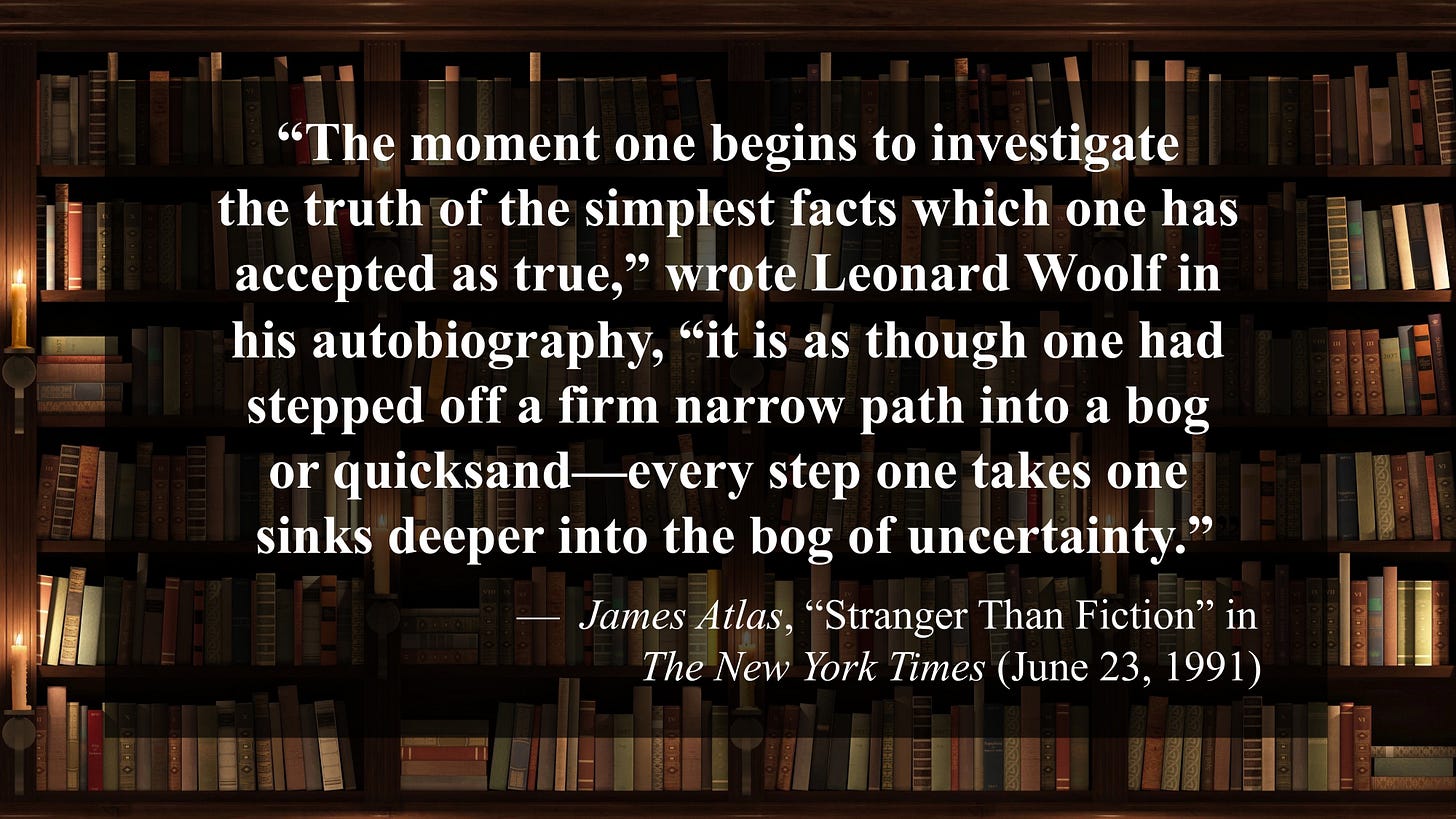

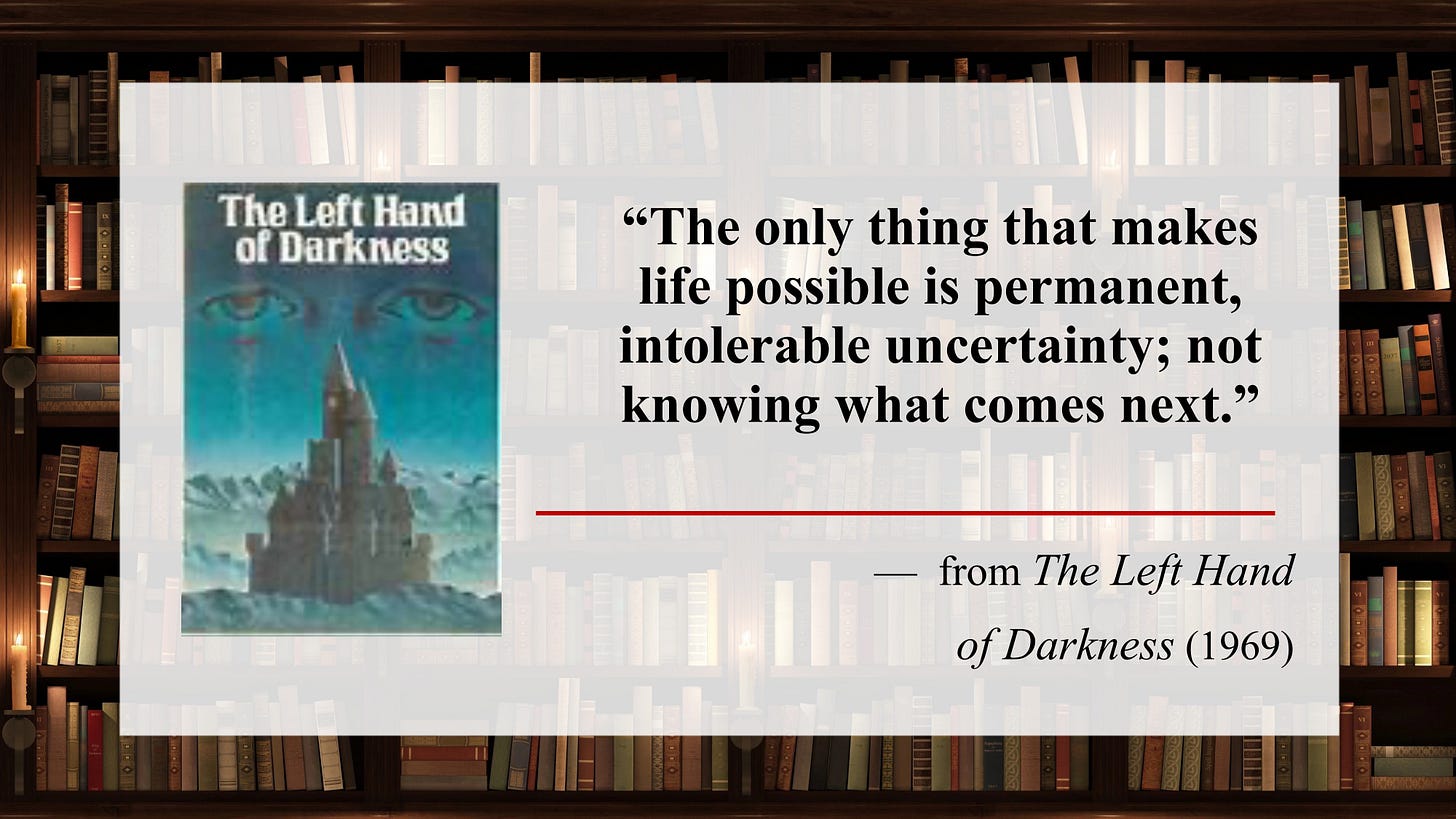
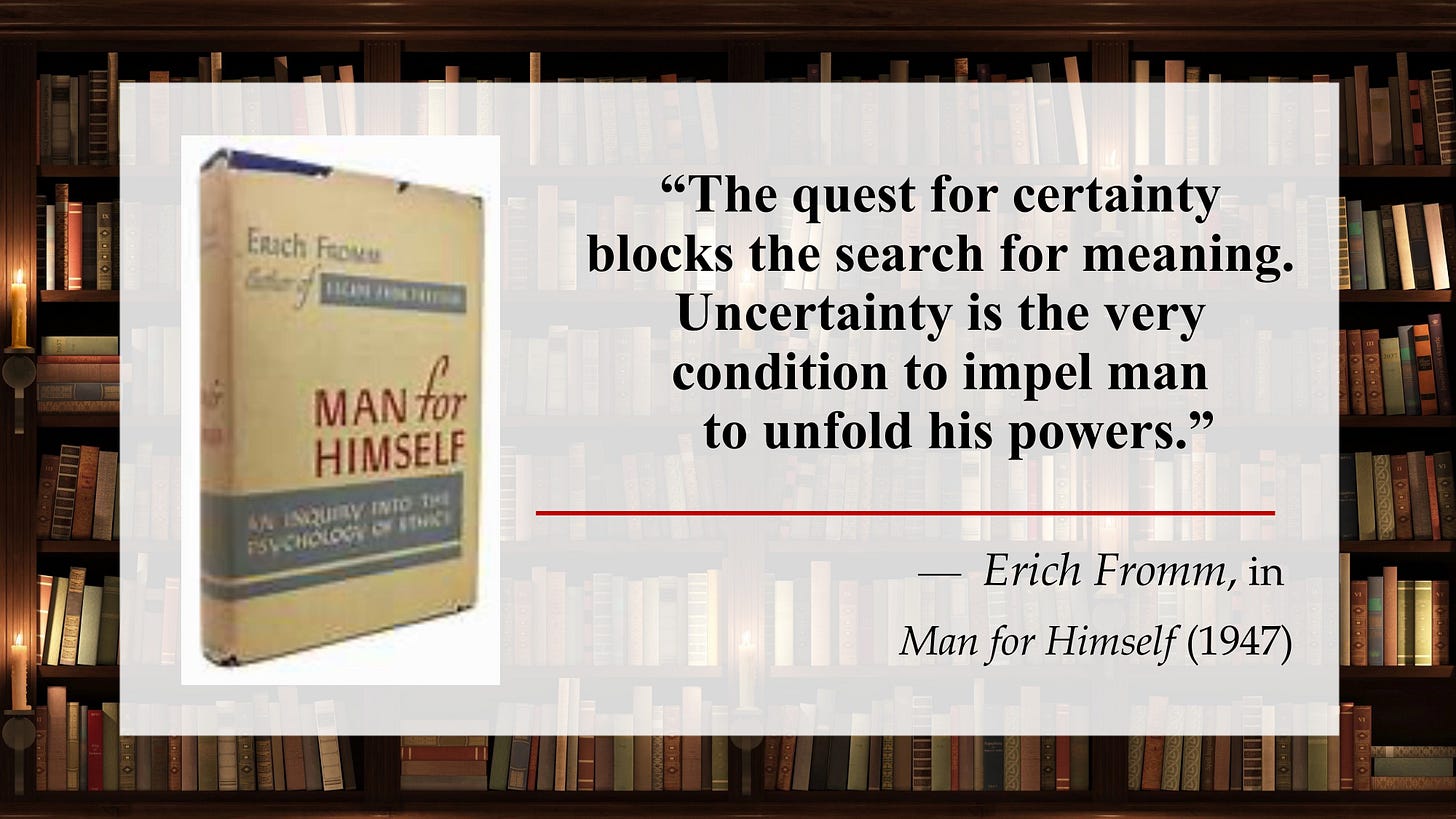
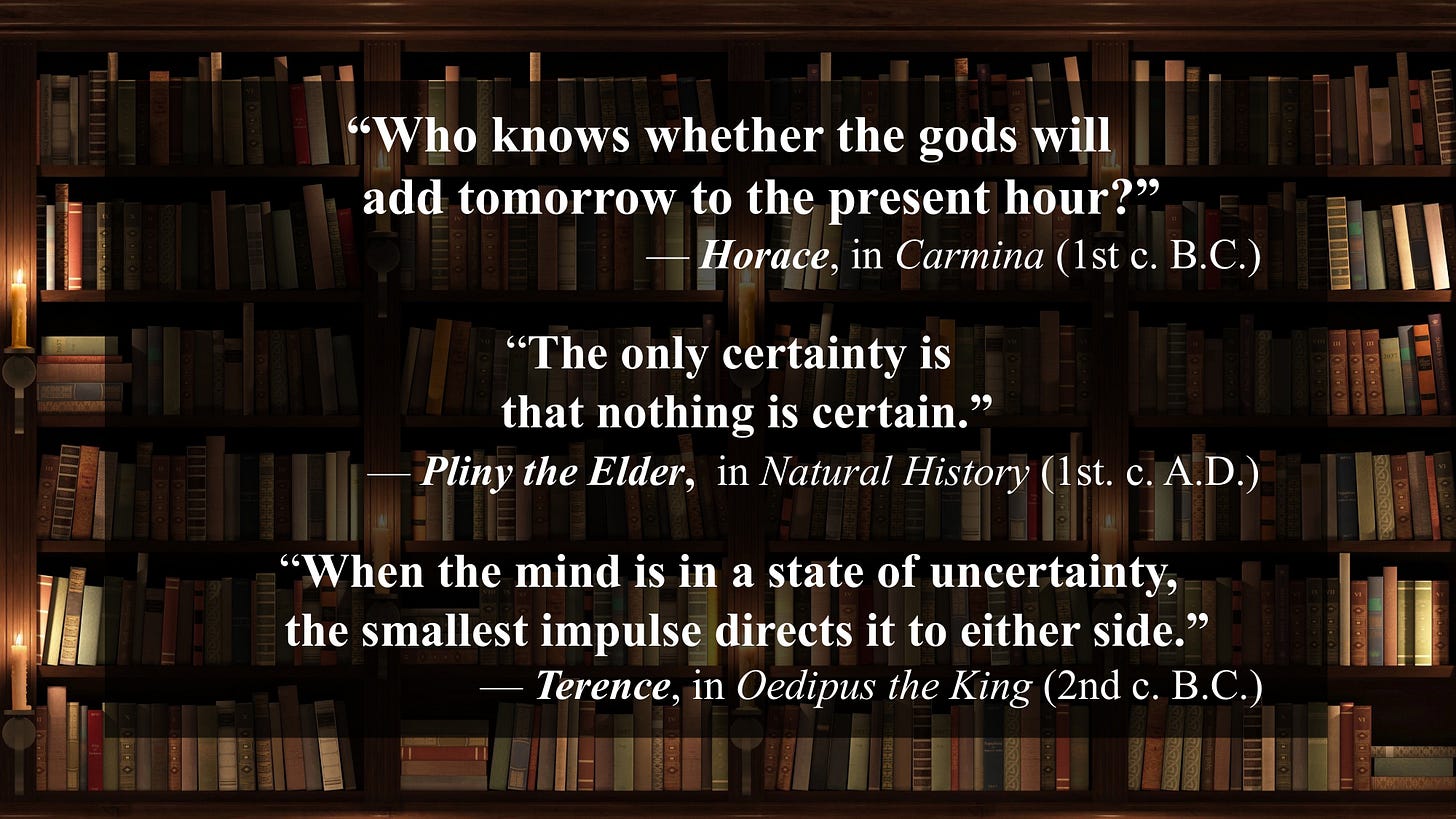
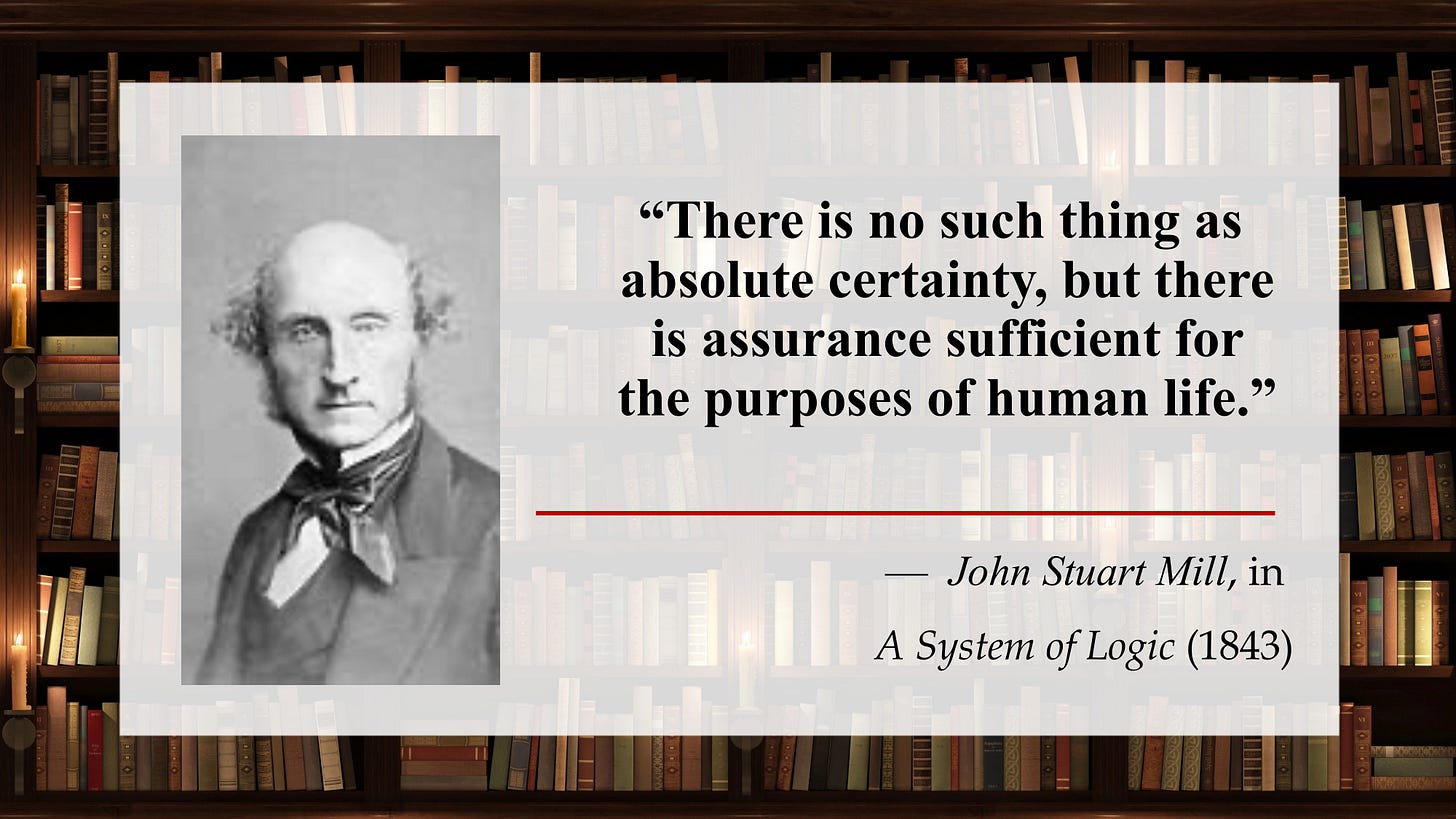
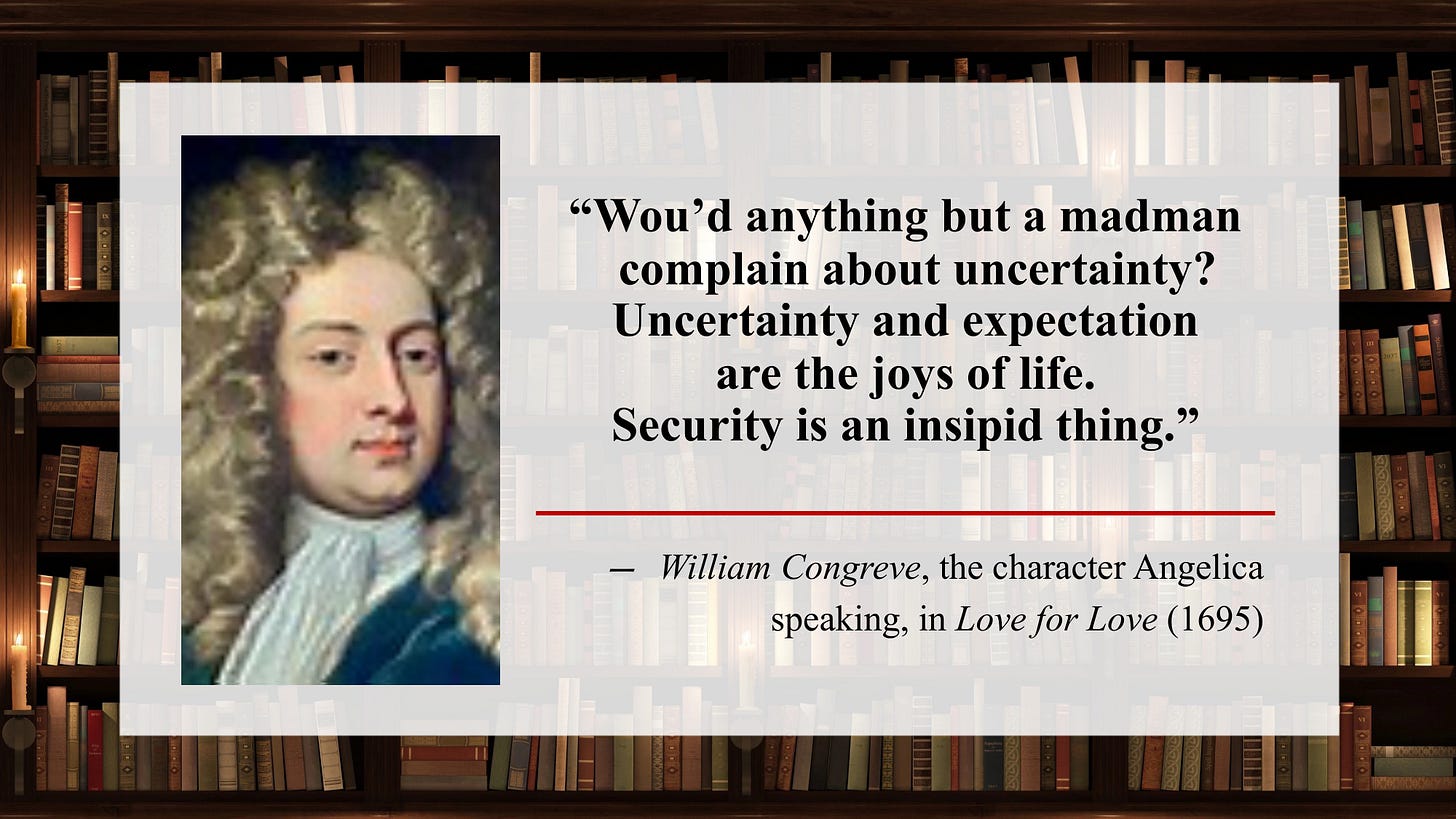
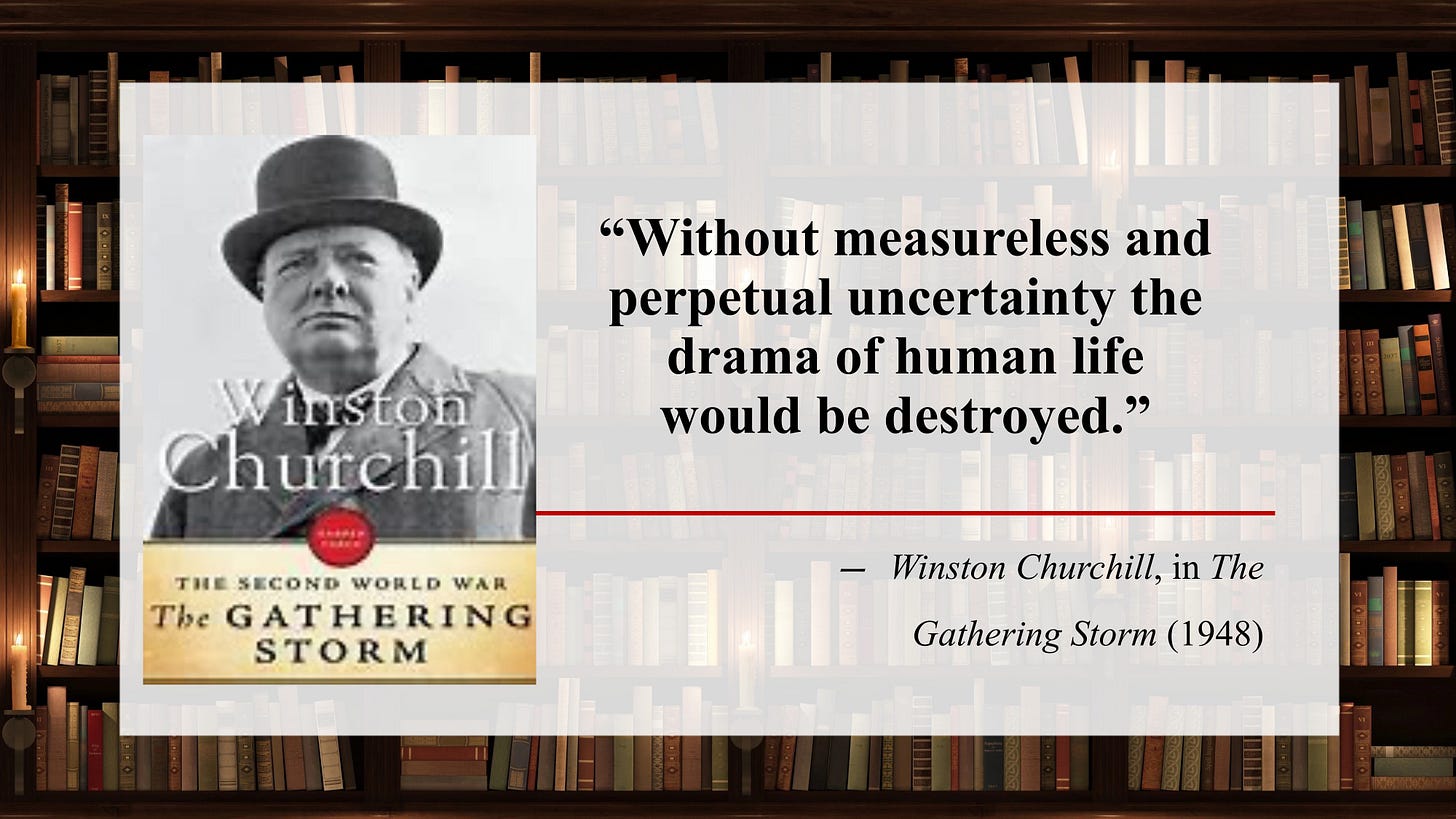
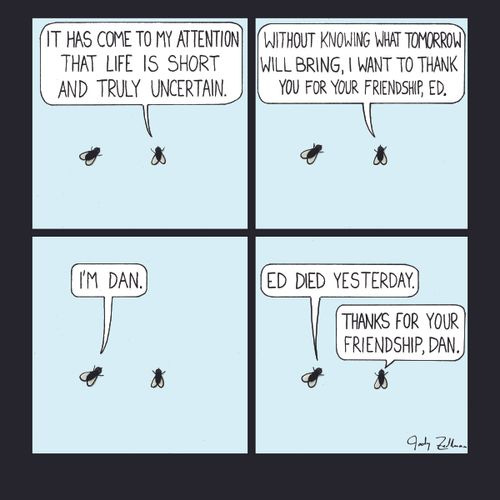
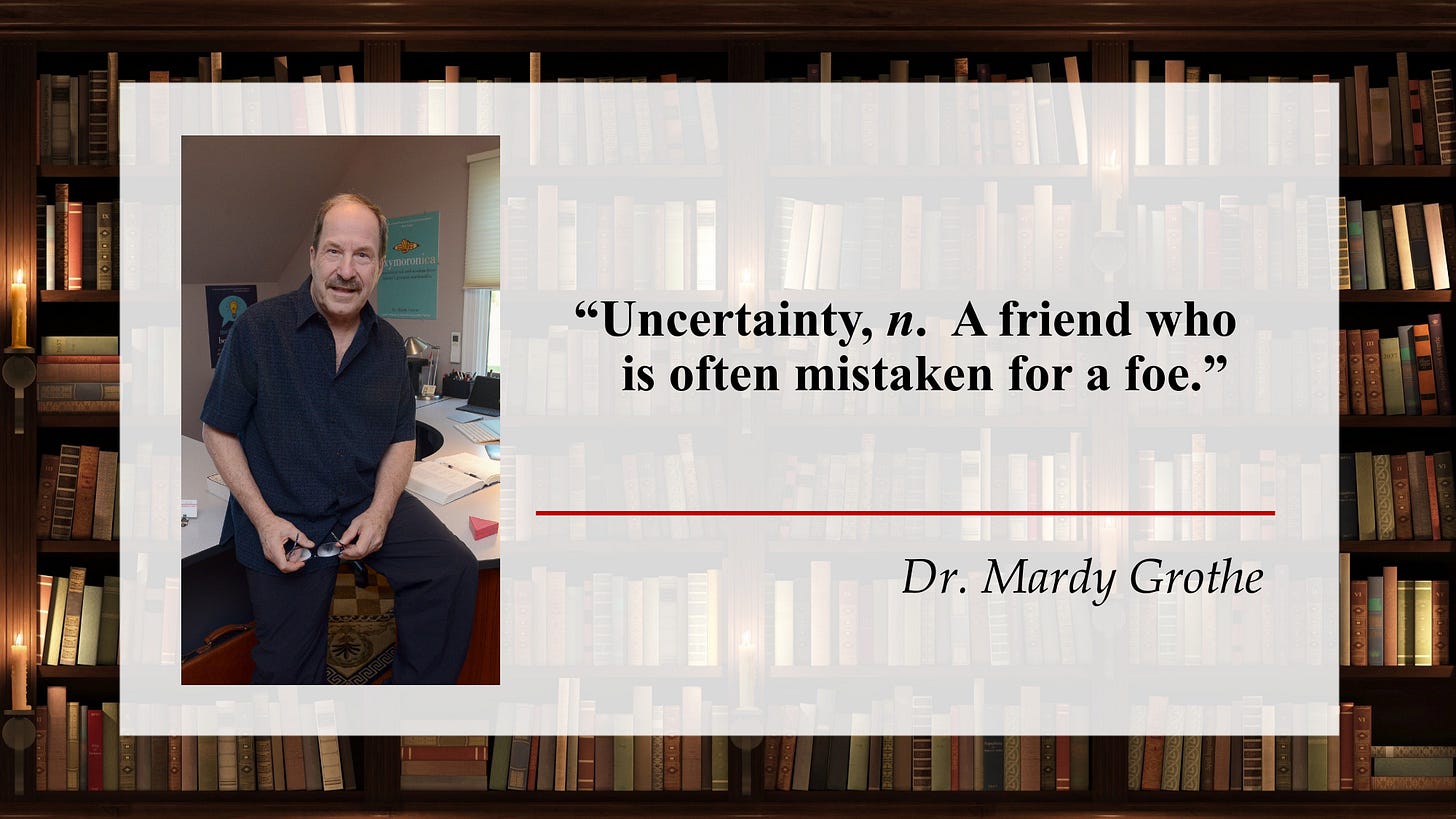
When uncertainty confronts us many turn to prayer. It's a coping mechanism for some. While it's not a solution, it is a balm. While I have not prayed for a very long time, I pray now for the orderly survival of our nation. It is my fervent wish and hope - for my grandchildren and yours.
Another great article for these uncertain election times. Most of life is uncertain. And it is the not knowing that excites us and keeps us being bored.